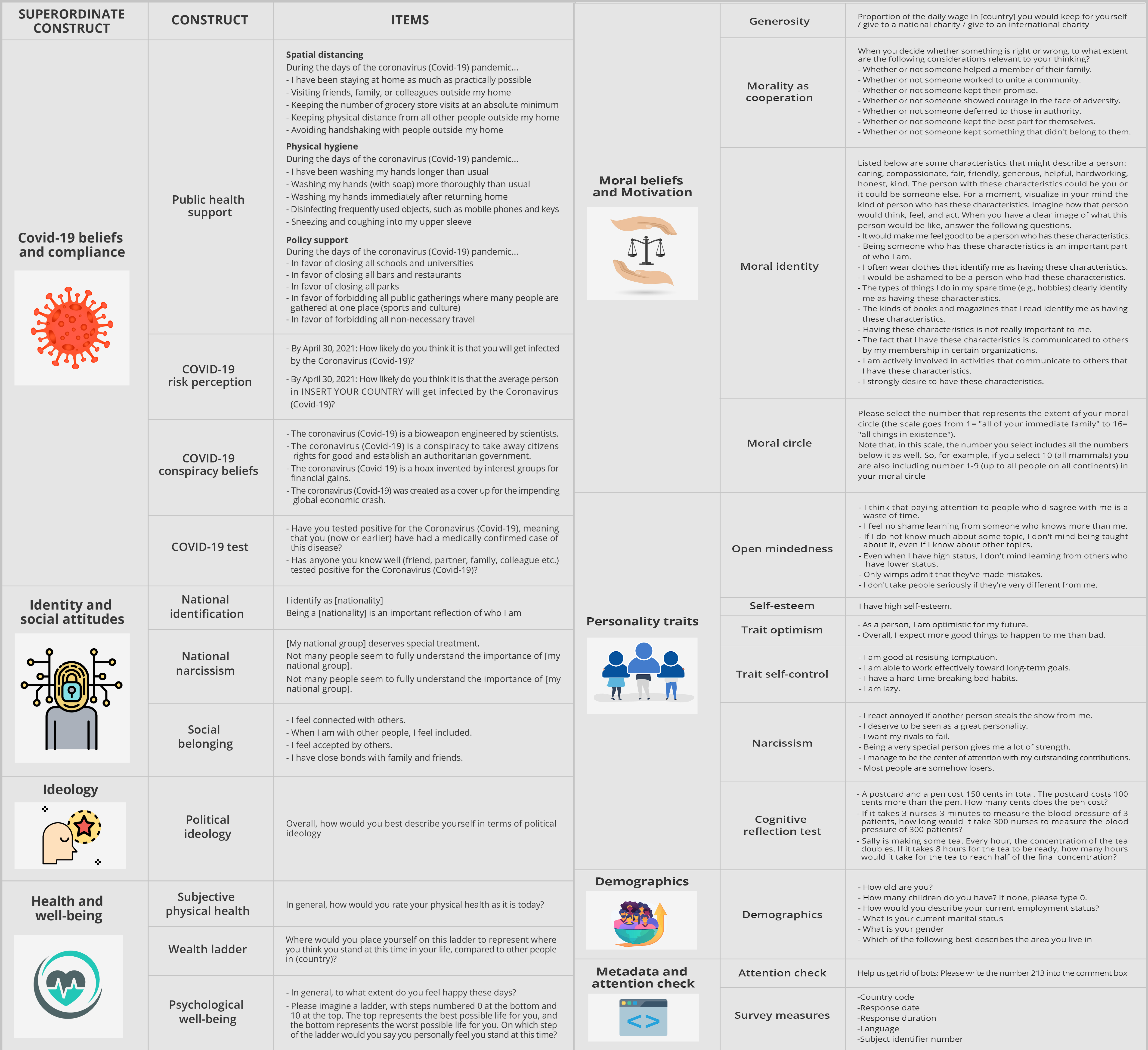About us
Where is ICSMP in the Globe?

What’s in our surveys?

Check out our Shiny App & data visualization interface.
If you use the ICSMP data on your research projects, please cite it as:
Azevedo, F., Pavlović, T., Rêgo, G. G. d., Ay, F. C., Gjoneska, B., Etienne, T., … Sampaio, W. M. (2022, May 18). Social and moral psychology of COVID-19 across 69 countries. https://doi.org/10.31234/osf.io/a3562
(for a non-APA style format, see the preprint page at the bottom-right search box)
About us
The goal of International Collaboration on the Social & Moral Psychology of COVID-19 is to bring together scholars from around the globe to examine psychological factors underlying the attitudes and behavioral intentions related to COVID-19. We focused on factors such as beliefs in conspiracy theories, cooperation, risk perception, social belonging, intellectual humility, national identification, collective narcissism, moral identity, political ideology, self-esteem, and cognitive reflection. The goal was to generate a massive multi-national sample of representative samples that can serve as a public good for the scientific community.
Over 250 researchers collected data from over 50,000 citizens in 69 countries. We are operating under a model of open science where all measures and data will be shared, and available for secondary papers upon publication. Indeed, we wrote a paper “Social and moral psychology of COVID-19 across 69 countries” describing our survey methodology, sharing all survey materials, raw and cleaned data, code, translations in our OSF repository (https://osf.io/tfsza/), and a data visualization interface via a Shiny app.
History
This projected was initiated by Jay Van Bavel, Mark Alfano, Paulo Sérgio Boggio, Valerio Capraro, Aleksandra Cichocka, Aleksandra Cisłak and Hallgeir Sjåstad, who were interested in examining the psychological factors underlying the attitudes and behavioral intentions related to COVID19. They sent an open call for International collaborators via social media, where Jay posted a call for teams who could collect representative samples around the world. This invitation was inclusive to any interested faculty (and their postdocs, grad students, etc) interested in these topics. We asked scholars to collect 500 or more participants from a representative sample in their home country. All collaborators received authorship in the first paper where we published the data for the scientific community. All collaborators were also free to add additional research items at the end of their surveys. The call resulted in over 250 researchers joining the project.
website designed and maintained by Flavio Azevedo.